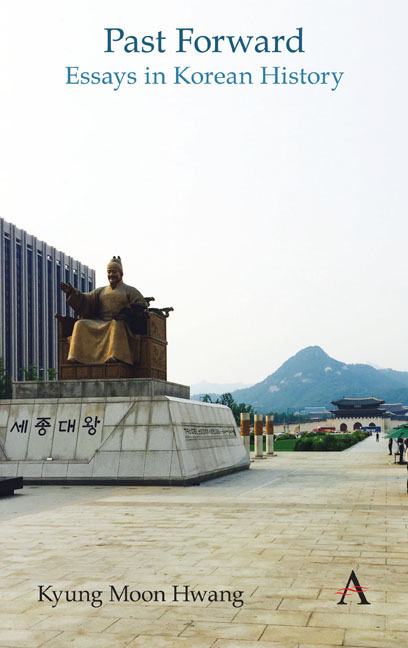Book contents
- Frontmatter
- Contents
- List of Figures
- Foreword
- Chronologies of Korean History
- Themes
- Acknowledgments
- Note on Romanization and Spelling
- Part I Circulating History
- Part II Durable Traditions
- Part III Ancient Remains
- Part IV Dynastic Depths
- Part V Modern Origins
- Part VI Challenges of Nationhood
- Part VII History Makers
- Part VIII External Presences
- Part IX Trials of Modernization
- Part X Gripped by the Past
- 70 Natural Disasters and the False Wisdom of the Past
- 71 Royal Dangers
- 72 North Korea's Alternative History
- 73 Origins of Korea's Political Corruption
- 74 Anti-Communism's Powerful Hold
- 75 Fraudulent Captains of the Sewol Ferry Disaster
- 76 Overcoming Past Hierarchies
- 77 Gripped by the Authoritarian Mindset
- 78 Ways of Living History
- Index
78 - Ways of Living History
from Part X - Gripped by the Past
- Frontmatter
- Contents
- List of Figures
- Foreword
- Chronologies of Korean History
- Themes
- Acknowledgments
- Note on Romanization and Spelling
- Part I Circulating History
- Part II Durable Traditions
- Part III Ancient Remains
- Part IV Dynastic Depths
- Part V Modern Origins
- Part VI Challenges of Nationhood
- Part VII History Makers
- Part VIII External Presences
- Part IX Trials of Modernization
- Part X Gripped by the Past
- 70 Natural Disasters and the False Wisdom of the Past
- 71 Royal Dangers
- 72 North Korea's Alternative History
- 73 Origins of Korea's Political Corruption
- 74 Anti-Communism's Powerful Hold
- 75 Fraudulent Captains of the Sewol Ferry Disaster
- 76 Overcoming Past Hierarchies
- 77 Gripped by the Authoritarian Mindset
- 78 Ways of Living History
- Index
Summary
Having to experience most of the extraordinary events of 2016 in South Korea remotely, I was grateful for the internet's powers of live transmission, but I still felt that I was missing out on history as it was being made. For the millions of South Koreans coming out to the streets on those fall Saturdays, there was an unmistakably stirring, even a festive, sense of living history, that their collective action was determining the fate of the nation itself.
Among the extraordinary outcomes of the candlelight demonstrations and the removal of President Park Geun-hye from office was that the process blew open the lid of the country's modern history. This result, then, stood as another dimension of living history: Because of the personal and institutional connections that directly extended to the military dictatorship period of the 1970s and 1980s, we eventually were compelled to think and uncover as much about the past as the present. And in the aftermath, we came to better understand what core people and patterns from South Korea's authoritarian period survived, and what behaviors, customs and connections continued to exert influence despite the formal political liberalization over the preceding three decades. For surely these revelations carried a strong historical bent and cast a dark shadow over the lineages of economic and political power that reached back to the days of autocracy. Here, then, are some sketches of the revised picture of the recent past that emerged:
First, the Yushin dictatorship of the 1970s under the command of Park Chung-Hee, the ousted president's father, depended far more on corruption than has been generally understood. There is a treasured impression among many South Koreans still today that while Park Chung-Hee led an authoritarian system, he and his regime were not corrupt. This of course defies logic, but the glorification of rapid economic development has obscured the networks of bribery, extortion, and coercion that were central to the dictatorship and, as is now clear, never went away.
Access to Park Chung-Hee, not surprisingly, remained in the hands of a few people, including his personal bodyguard, the Korean Central Intelligence Agency (KCIA) director (who eventually assassinated Park and his bodyguard), and Park's daughter Geun-hye.
- Type
- Chapter
- Information
- Past ForwardEssays in Korean History, pp. 224 - 225Publisher: Anthem PressPrint publication year: 2019



